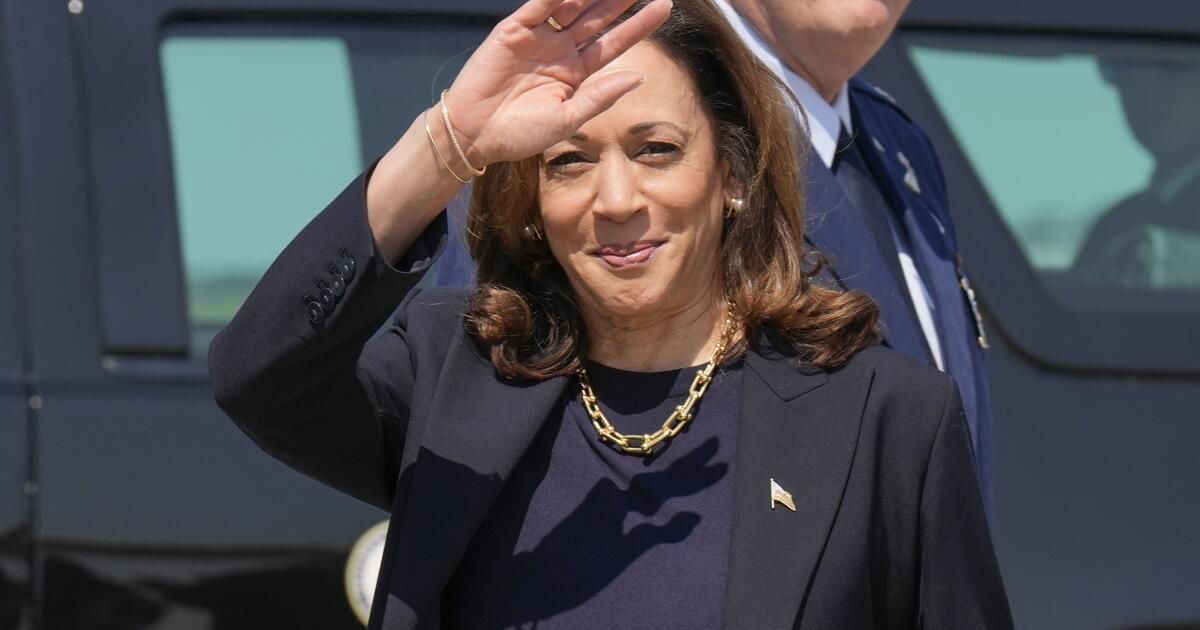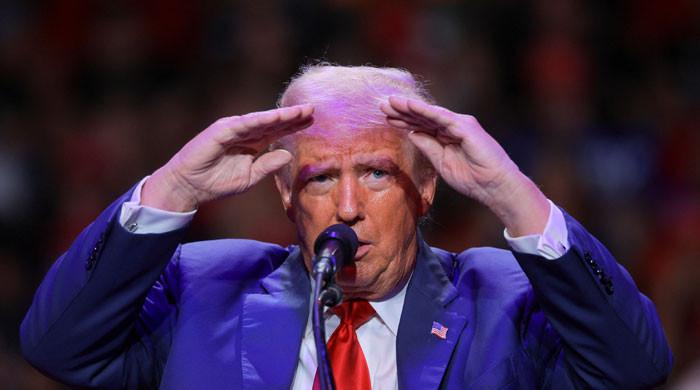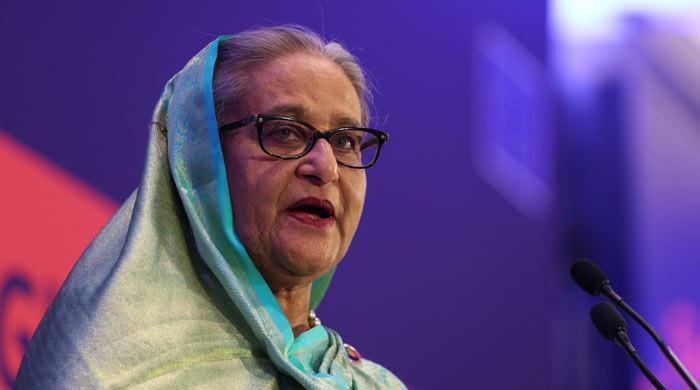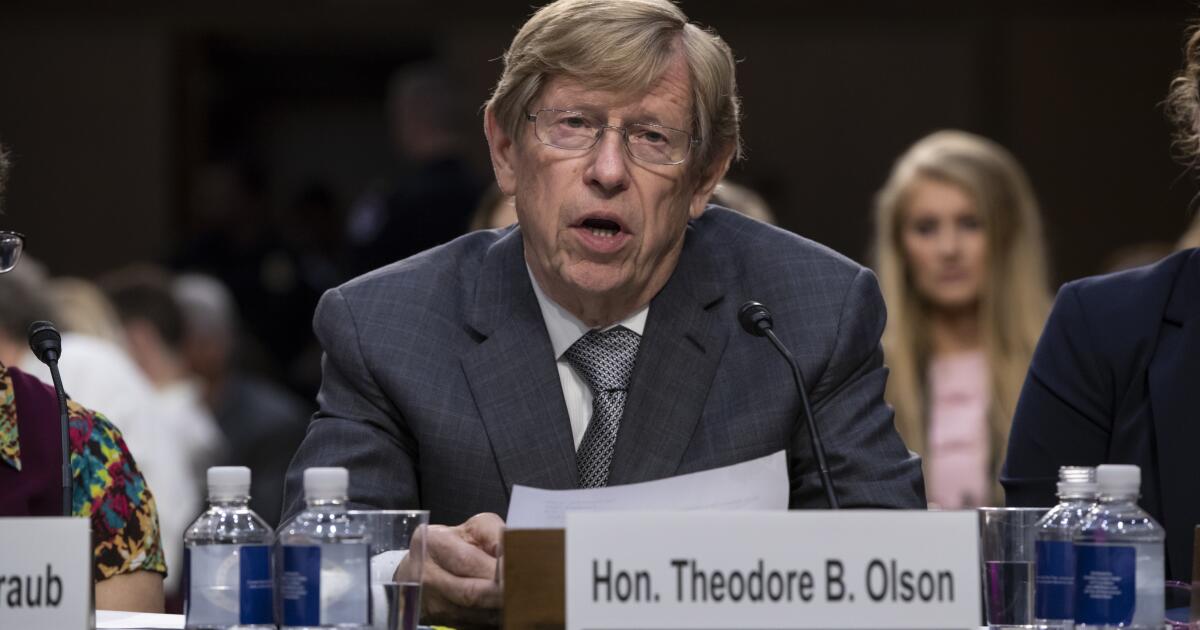Vice President Kamala Harris has spent nearly four years working alongside an American president for whom foreign policy is a passion bordering on political religion, rooted in memories of the Cold War and largely unchallenged American global dominance.
Harris brings her own worldview to the job of global leader — a next-generation perspective shaped by her life as a woman of color who came of age after the Cold War, the daughter of immigrants and someone who spent a career in law enforcement in California, the most diverse and progressive state in the U.S.
Details of Harris's foreign policy have yet to be revealed; some aspects could become clearer during tonight's presidential debate.
But those who know and have observed Harris anticipate a more modern outlook that embraces multilateralism while acknowledging the primacy of the United States' role on the global stage.
They see Harris’ policies as driven less by outdated political ideologies and more by changing realities on the ground, and as having a deeper emphasis on core American values of the rule of law and human rights, particularly when they involve women.
Two decades younger than Biden, Harris, 59, ascended onto the national political stage amid an era of threats and challenges to the United States that would put different issues at the forefront of her foreign policy, current and former aides say, including climate change, food security and the dangers of artificial intelligence.
Her background as the daughter of a Jamaican-born economist and an Indian-born cancer researcher has certainly broadened her geopolitical scope. Such nuances were on display amid the war between Israel and Hamas. While she has asserted her staunch support for Israel’s right to self-defense, she has emerged as the Biden administration’s loudest voice in support of suffering Palestinians in Gaza, inviting comparisons to the US’s own civil rights struggle.
“Her upbringing, as the daughter of immigrants but also of civil rights activists, shaped her political views and her worldview,” said Halie Soifer, who served as Harris’ national security adviser in her first two years as a senator.
As vice president, Harris has focused her efforts on the often-neglected Caribbean region and its urgent fight against climate change, where island nations are in danger of drowning at sea.
Her first trip abroad as a U.S. senator was to a Syrian refugee camp in Jordan, where most of the desperate occupants were women and children. (She also visited U.S. military troops from California stationed in Iraq.)
She is the highest-ranking Biden administration official to travel to sub-Saharan Africa.
“I expect to see her focus more on parts of the world that traditional European-American people may pay less attention to,” Anne-Marie Slaughter, a former senior State Department official during the Obama administration, said during a recent foreign policy webinar.
Harris's first foray onto the world stage as vice president backfired.
Biden has given her the thankless task of trying to stem illegal immigration by addressing the “root causes” of the northward exodus from Latin America. Though Republicans falsely label her the “border czar,” her mandate was never to control border crossings.
He was tasked with launching programs to alleviate the suffering and lack of opportunities and basic rights of people living in countries that were among those sending the largest numbers of migrants: El Salvador, Honduras and Guatemala.
Harris found that he had no partners to work with. The governments of all three countries were riddled with corruption and anti-democratic actors, making honest negotiation impossible.
Biden, who often felt confident that he could charm and cajole difficult leaders into making concessions, could have embraced them despite their unsavory characteristics. Harris, by contrast, did not publicly confront them and sought out other partners to work with, such as civic and business groups.
Some of his initial efforts have begun to bear fruit. He has managed to raise more than $5 billion in investments, mostly from the private sector, for the region. Meanwhile, illegal immigration from the three countries has declined and shifted to other countries.
The difficulty of those negotiations may have made her less willing to be bold on some initiatives, especially in foreign policy. She is not known for taking risks.
In speeches and actions, Harris has advocated for continued support for some of Biden’s most important foreign policies, such as supporting Ukraine in its fight against Russia and, with the same goal in mind, uniting and expanding the North Atlantic Treaty Organization.
He replaced Biden for three consecutive years at the Munich Security Conference, a major annual gathering of world leaders held for decades in Germany to discuss peace. This year, he delivered a forceful speech in which he acknowledged international nervousness about the direction the United States might take under a new Trump administration.
His administration, he said, has “built and sustained alliances” that made the United States the “most powerful and prosperous” country on Earth, “alliances that have prevented wars, defended freedom, and maintained stability from Europe to the Indo-Pacific.”
She added a call to promote “rules and norms for outer space” and “to empower women around the world.”
He met with Chinese President Xi Jinping, patched things up with France's Emmanuel Macron after a diplomatic row over a submarine contract, reassured Ukraine's Volodymyr Zelensky about continued arms supplies and helped persuade NATO countries to welcome Sweden and Finland into their ranks.
He has traveled to 21 countries, including those in Africa, and met with 150 world leaders, according to his office.
Secretary of State Antony J. Blinken, who attended the Munich meetings with Harris, said he had watched her “lead a room full of world leaders.”
“And what I’ve seen is someone who repeatedly asks penetrating questions, who gets right to the point and is intensely focused on the interests of the American people and making sure that our foreign policy is doing everything it can to advance those interests,” he said in July, shortly after Biden dropped out of the presidential race.
“In my experience, [foreign policy] “That’s very much his strength,” Blinken added.
It remains to be seen whether Harris would be less willing than Cold War leader Biden to use military force against America's enemies, or whether she would follow the more moderate practice of former President Obama.
One of Obama's top advisers, Phil Gordon, has served as Harris' national security adviser for the past two years and is considered a leading candidate to succeed President Harris in the Oval Office in the same role.
Gordon, who has been involved in diplomacy in Europe and the Middle East, is often classified as a progressive national security official. He held senior positions in European affairs during the Clinton and Obama administrations and most recently accused Trump of dealing a “death blow” to the U.S. alliance with NATO.
During the Obama administration, Gordon's advice translated into a brief rapprochement with Russia, a rapprochement with the Arab world and ardent support for the international nuclear deal with Iran that restricted Tehran's nuclear program.
In a 2020 book, Gordon scathingly reviewed seven decades of failed U.S. interventions in the Middle East, arguing that “regime change” rarely works and offers “false promises.” He argued for a less arrogant and hegemonic U.S. role in the world and with less U.S.-centric ambitions.
He joined Harris's national security team as a deputy adviser on her first day as vice president and was promoted to the top job 14 months later. Gordon, along with his deputy Rebecca Lissner, are said to have considerable influence on Harris in shaping her foreign policy ideas.
Matthew Duss, a global affairs expert at the Center for International Policy, said Gordon and Lissner are likely to help Harris shift foreign policy away from Biden’s Cold War prism of “America and the good guys versus the bad guys.”
“He has the opportunity to de-escalate that kind of tension,” Duss said in an interview. “They have a different vision of how the United States can act in the world. I don’t want to say that we want to pull back or retreat from global affairs… But part of using [U.S.] “Power is actually considered legitimate when we use that power and influence, not when we do so in a completely selfish and nationalistic way.”
Times staff writer Noah Bierman contributed to this report.












